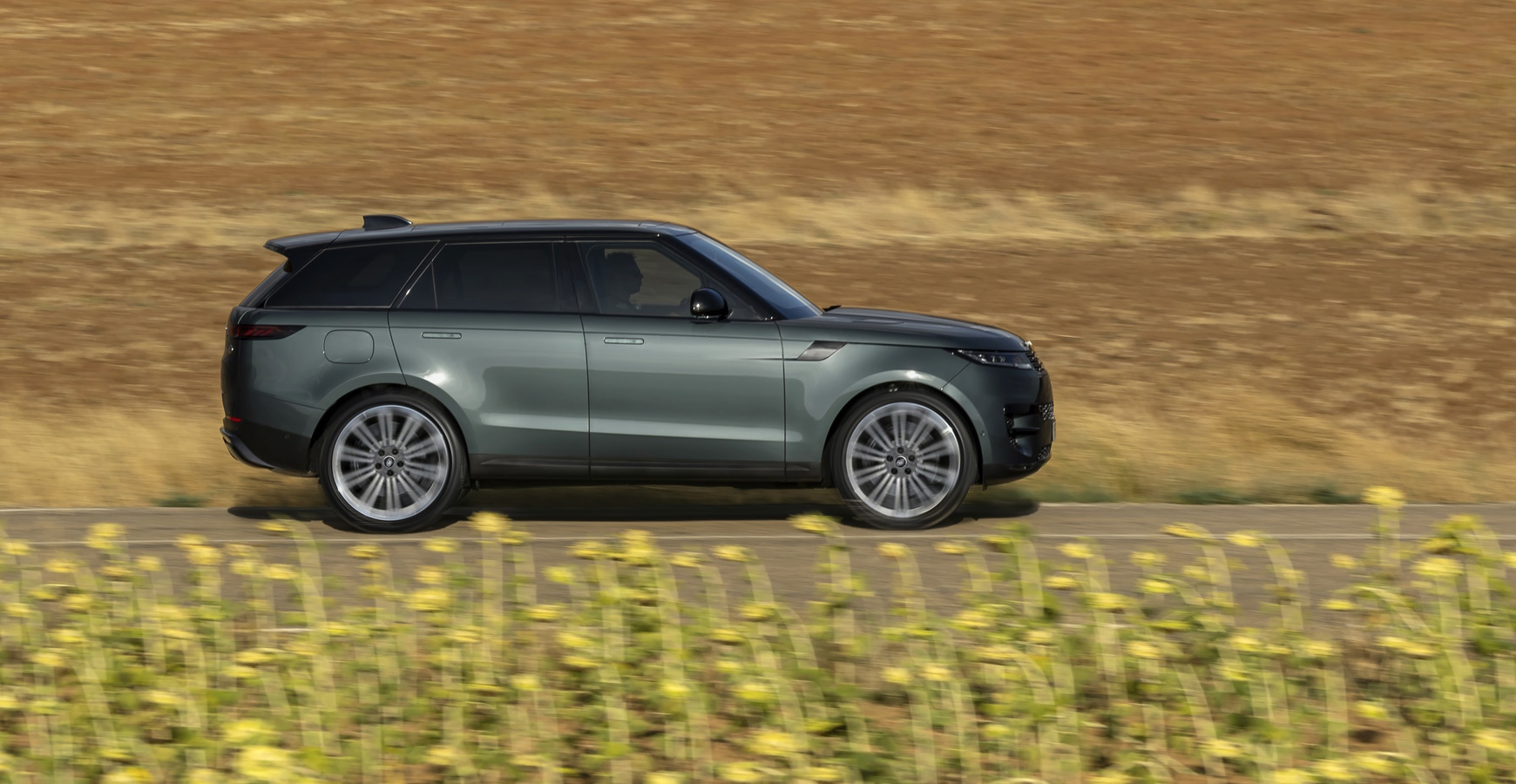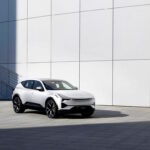Sometimes, you need to go everywhere. You need a robust vehicle that can take you through deep mud, sand, gravel, and on-road. However, you also want something more posh than your average Jeep. That’s where Land Rover and Range Rover come in! The Range Rover is known to be a go-anywhere SUV that can compete with the most luxurious SUVs. If you only have $83,000 (plus more for options) burning a hole in your pocket, then the slightly smaller Range Rover Sport SE is your best bet. Luckily, that’s what I tested! How was the 2023 Range Rover Sport SE? Is it worth being a “Range Rover” and a “Sport”? It’s the exterior time! Here is a controversial statement: I think the Range Rover Sport is more handsome than the regular Range Rover.
It takes the best parts of the new Range Rover and gives it a more stylish rear end. This Range Rover Sport was coated in Giolia Green for $710 and a Black contrasting roof for $1,000. 21-inch wheels are standard, while this Sport wore 22-inch satin dark gray wheels for $1,550. Starting at the front, you can tell this is a part of the Range Rover lineup. It does help that RANGE ROVER is spelled out. The lights are sculpted into the grille which uses horizontal slots and a tiny Land Rover badge. Looking from the side, there is one thing that stands out…this little piece of the black plastic trim situation on both the hood and near the front door. It’s just a piece of black plastic and looks cheap. Otherwise, the Range Rover Sport has a sporty (pun) silhouette. I love two-tone paint, and a green and black Range Rover just works well. Like other Range Rovers, the door handles extend when the doors are unlocked and retreat when the doors are locked. When we look at the rear, you’ll see two aerials along with the same massive RANGE ROVER badge. Tail Lights wraparound with much smaller reverse lights. You’ll see two fake tailpipes and smaller Sport and Land Rover badges.
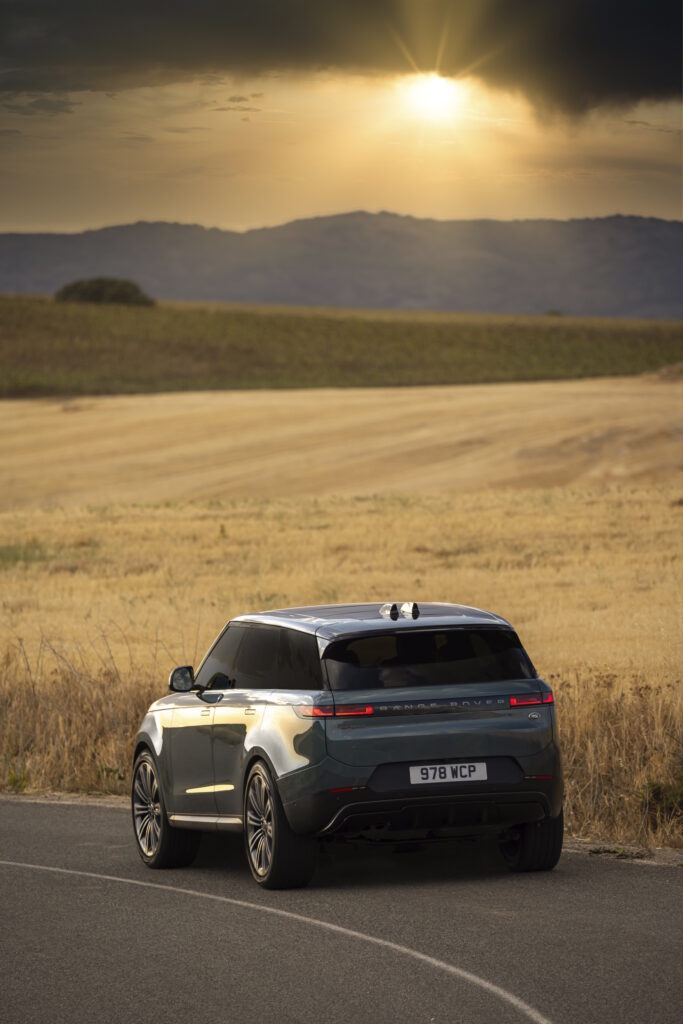
It usually doesn’t take me a few seconds to find something I like, but all I had to do was open the door! The Sport’s seats are electrically operated with buttons on the door, a la Mercedes-Benz. When you try to exit the SUV, you’ll find the door handles are in a bad position and should be closer to the driver. Now that you’re sitting in the Ebony interior, you’ll see an updated interior. It’s difficult to not see the star of the interior: the 13.1-inch Pivi Pro infotainment system. This has Apple CarPlay, Android Auto, and Amazon Alexa. What was a nice Range Rover touch was when I would start the Sport, the infotainment system’s widgets were Navigation, Slope Assist, and a Compass. Since the Range Rover has air suspension, you can modify the ride height. Access is for exiting and entering the SUV. Normal is where the SUV is the default ride height. You can also access Off-Road and Off-Road 2. You’ll find your regular infotainment features such as navigation, eco data, and climate. Moving down, you’ll see two dials and a few haptic feedback for climate control. I was happy that the main climate control functions are dials.
These use a push-and-pull combo for different features. Want to change the fan speed? Pull up! Want to put on your heated seats? Push down. Seems simple enough. The haptic feedback buttons will bring up a screen on the infotainment system which is where you modify your vents. In front of the driver is a steering wheel with mostly haptic feedback controls. You can control the digital screen in front of the driver along with media and safety systems. The dials start with two digital dials, but you can have the screen as navigation, a combination function, or a sporty screen with a giant tachometer. The seats are supportive and comfortable, both first and second rows. Although this model didn’t have ventilated seats, if you want those, I’ll tell you the price later. To shift the Sport is a small shifter but I had a slight problem with it. I noticed I used it as a makeshift place to place my hand to use the infotainment system. It would try to knock the transmission into neutral but the Sport noticed this and said I had to use the button on the shifter.
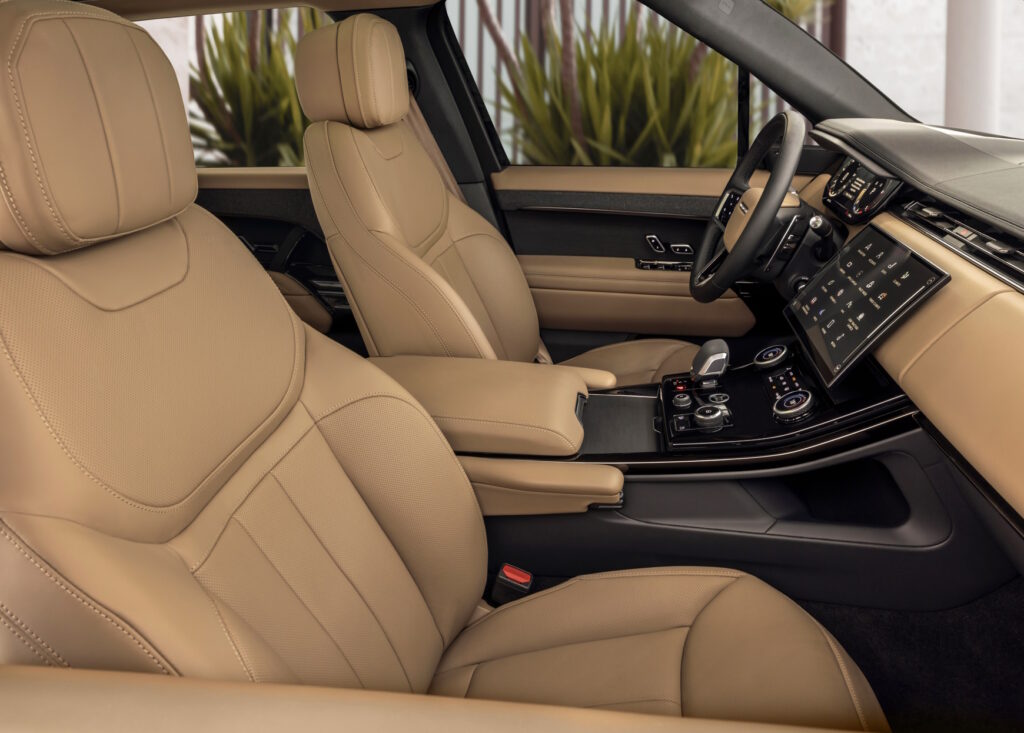
Some negatives of the interior: first off, the placement of the door handles and the lock/unlock buttons. They’re near your knees and should be much higher up. Second, Natural Black veneer is a fancy way of saying Piano Black plastic and there were a lot of smudges. The oddest thing was the positions of the USB and USB-c to utilize Apple CarPlay and Android Auto. First, you have to pull back the divider to get to the cup holders. Those cup holders are square and didn’t fit my fancy Starbucks cups as well as I thought. After sliding that back, you get a deep cubby that has the USBs. Why? I have no idea. The Range Rover Sport SE is the bottom-of-the-rung Sport trims, so it gets the least-powerful engine. It’s a 3.0-liter turbocharged and supercharged six-cylinder engine. It produces 355 horsepower/265 kW and 365 lb-ft/495 Nm.
This uses an eight-speed automatic and standard all-wheel-drive. When you combine all of this, the Range Rover Sport gets from 0-60 MPH in 5.7 seconds. That doesn’t sound bad, but the Range Rover feels heavy. The name is also a bit of a misnomer. There isn’t any Sport in the Range Rover Sport. Sure, there is dynamic mode and sports-calibrated transmission, but you won’t be taking corners head-on. What Range Rover does want you to do is utilize their off-roading capabilities. Theoretically, this can wade up to almost three feet and has multiple settings such as Mud and Ruts, Snow, Sand, and an Off-road mode. Will you use it there? Probably not. What you will see is 16-18 MPG which seems low.
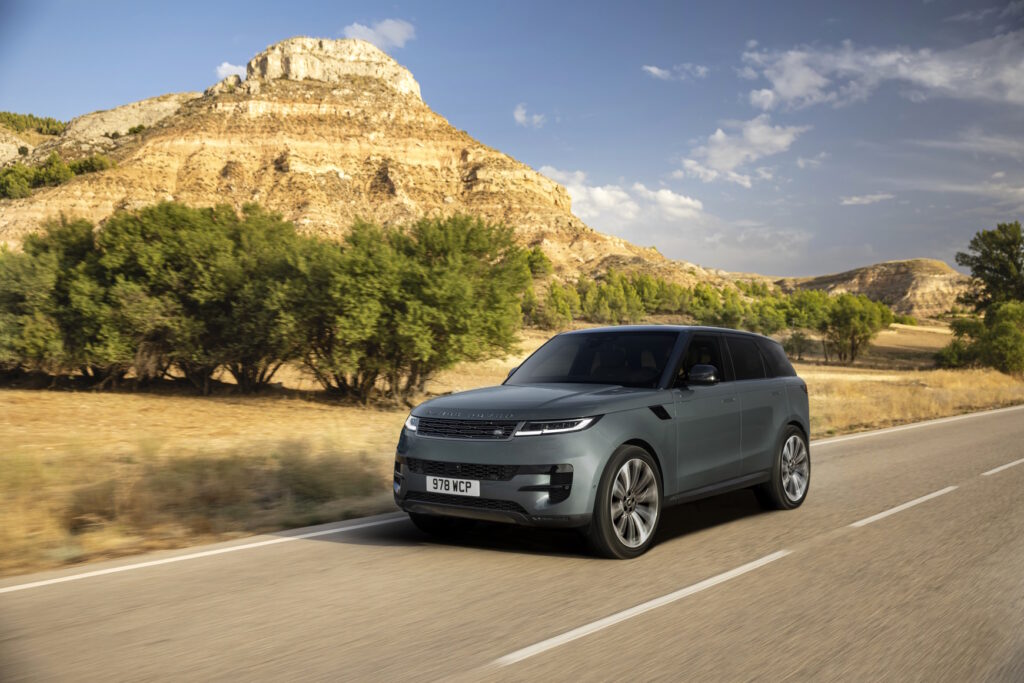
Now, the Range Rover Sport starts at $83,000, and with an as-tested price of $90,000, it’s quite expensive. The options include 22-inch wheels for $1,550. Black contrast roof for $1,000. Giolia Green for $710. A Cold Weather Package for $640 gets you a heated windscreen, heated washer jets, and heated steering wheel. Pixelated LED headlights are $600. A full spare is $500. Natural Black Veneer is $410. Finally, a Wi-FI Enabled with Data Plan is $360.
Is this price justified? That depends on two things. If you look at the competition, then no. Even if you add another $600 for ventilated front and rear seats, German automakers get you more kit and more powerful engines. If you want a Range Rover badge that can go anywhere, has a nice interior, good tech, and a pretty exterior, this is a great choice. I’d go with this model since it has the kit that you want. Just add in the ventilated seats.
Words by Anthony Fongaro Photos by Land Rover

